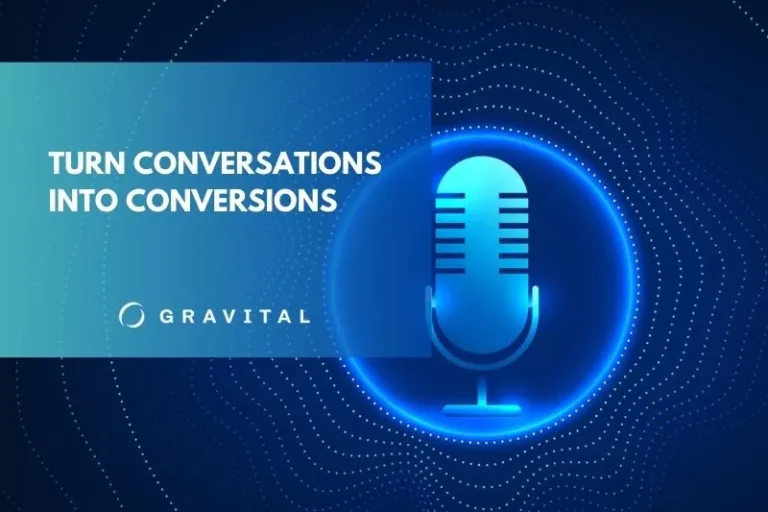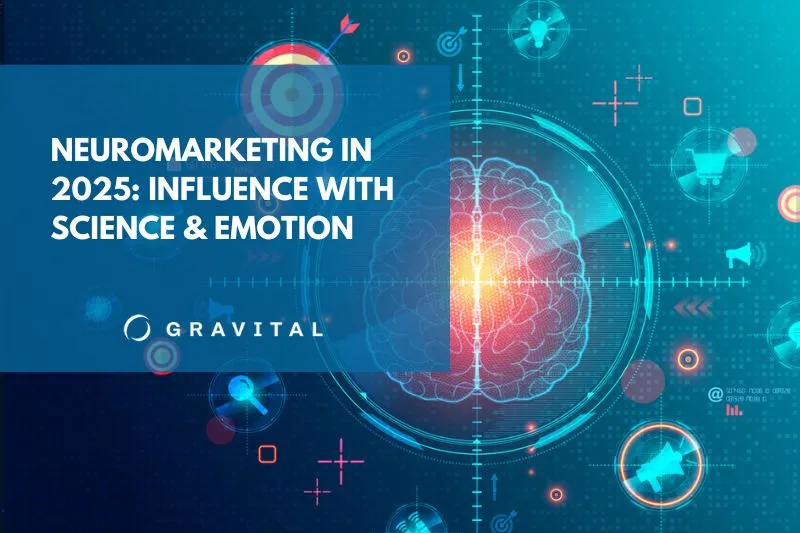Once a niche medium, podcasting has evolved into one of the most powerful tools in the B2B content marketing playbook. Today, brands aren’t just broadcasting — they’re building relationships. With more than 586 million global podcast listeners and over 6.5 million active shows in 2025, the question is no longer “Should we start a podcast?” but rather “How do we make our podcast strategy a core part of our brand’s growth?”
Today, podcasts are everywhere, and everyone seems to be eager to pick up the mic. With the ability to deliver in-depth content in an engaging and personal format, podcasts are rapidly becoming a favored tool among B2B marketers and brands.
The Podcast Format
A podcast is a series of spoken-word, audio episodes, typically focusing on a particular topic or theme, such as technology, business, travel or health. Podcasts can be easily streamed or downloaded from the internet and are accessible on various platforms, offering listeners convenience and flexibility.
Unlike traditional radio, podcasts allow for on-demand listening, making them an attractive option for busy people.
The B2B Podcast Advantage: It’s All About Connection
In an era where authenticity and expertise drive buying decisions, B2B podcasts offer something few other channels can: an intimate, on-demand experience that builds trust, educates, and inspires action. Unlike traditional marketing methods that interrupt, podcasts invite — offering prospects a seat at the table for meaningful, in-depth conversations.
Why B2B Podcasting Works in 2025:
- Longer attention spans: 90% of podcast listeners finish most or all of an episode — compared to just 12% with video.
- Highly influential audience: 53% of weekly listeners participate in business purchase decisions.
- Authentic branding: Podcasts create space for real voices and stories, projecting trust and humanizing your brand.
- Strategic SEO & repurposing potential: Podcast content can be transcribed, optimized, and turned into blogs, audiograms, social posts, and newsletters.
Thought Leadership Meets Scalable Strategy
B2B buyers are looking for insights, not ads. Podcasting positions your company as a go-to expert by:
- Hosting meaningful conversations with industry leaders.
- Tackling trends, challenges, and innovations relevant to your audience.
- Showcasing internal experts and culture — building affinity and employer branding.
According to Edison Research, 74% of podcast listeners tune in to learn new things. This makes podcasting the perfect medium to deliver value-first content that earns attention and builds brand equity.
Podcasts in B2B Marketing: A Growing Trend
Podcasts offer B2B audiences an intimate environment for receiving valuable knowledge and ideas, news, trends and insights directly from industry leaders and experts, encouraging intellectual engagement and brand association. The format is ideal for multitasking professionals because they can listen to their favorite podcasts as they exercise, commute, cook, travel, work, etc.

Podcasts’ unique ability to engage listeners through storytelling and in-depth discussions facilitate information-driven purchasing decisions, making the format a particularly effective marketing tactic for B2B brands. As a result, more companies are using podcasts to drive business growt.
This shift is no mere fad. It’s a strategic move fueled by the unique strengths of audio as a medium and the evolving needs of today’s business professionals.
READ ALSO: WHY OUTSOURCE YOUR CONTENT MARKETING? TOP BENEFITS OF PARTNERING WITH AN AGENCY
Building Brand Awareness in a Noisy Market
With podcast listeners spending over 54 minutes per day on audio content, you’re not just reaching your audience — you’re becoming part of their routine. Branded B2B podcasts have been shown to:
- Increase brand awareness by up to 89%.
- Boost brand favorability and purchase intent.
- Position your voice and mission in the ears — and minds — of key decision-makers.
How to Start a Podcast That Actually Works for B2B
Starting a podcast doesn’t require a massive budget — but it does require a strategic foundation. Here’s how to launch and grow a podcast with impact:
- Define Your Goals
Is your podcast for thought leadership, lead nurturing, strategic partnerships, or internal brand building? Knowing this informs every decision moving forward. - Know Your Audience (and Where They Listen)
Use tools like Rephonic to understand what your target audience is already listening to, and build around gaps in content, tone, or format. - Focus on Format and Frequency
Interview-driven? Solo insights? Roundtables? Choose what works for your team and your listeners. And remember: consistency beats frequency. - Invest in Sound Quality
Professional doesn’t mean expensive, but clean, well-edited audio reflects your brand. Prioritize good equipment, editing, and hosting. - Showcase Internal and Guest Voices
Your team has insights. Your partners have stories. Give them a platform — it humanizes your brand and extends reach through shared audiences. - Include a Clear CTA in Every Episode
Whether it’s visiting your site, downloading a resource, or connecting on LinkedIn, guide listeners to the next step.
Repurpose to Maximize ROI

One podcast episode can generate:
- 1 blog post
- 5+ social media snippets
- 1 email newsletter
- 1-2 audiograms or short videos
By turning audio into written and visual content, you amplify reach, improve SEO, and stretch your content investment further than most traditional formats.
Stats That Prove the Power of B2B Podcasting:
- 83% of senior executives listen to podcasts weekly.
- Listeners are more likely to consider a product after hearing it on a podcast.
- 36% of B2B marketers now include podcasting in their content strategy.
- Podcast listeners are more engaged and 12% more likely to remember your brand than with other forms of content.
Final Thoughts: Don’t Just Join the Conversation — Lead It
B2B podcasting in 2025 isn’t just a nice-to-have — it’s a strategic, scalable, and powerful tool for growth. From building community and trust to supporting SEO and lead generation, it’s one of the most versatile content formats available today.
Ready to elevate your brand’s voice? Let’s start talking WITH US.


